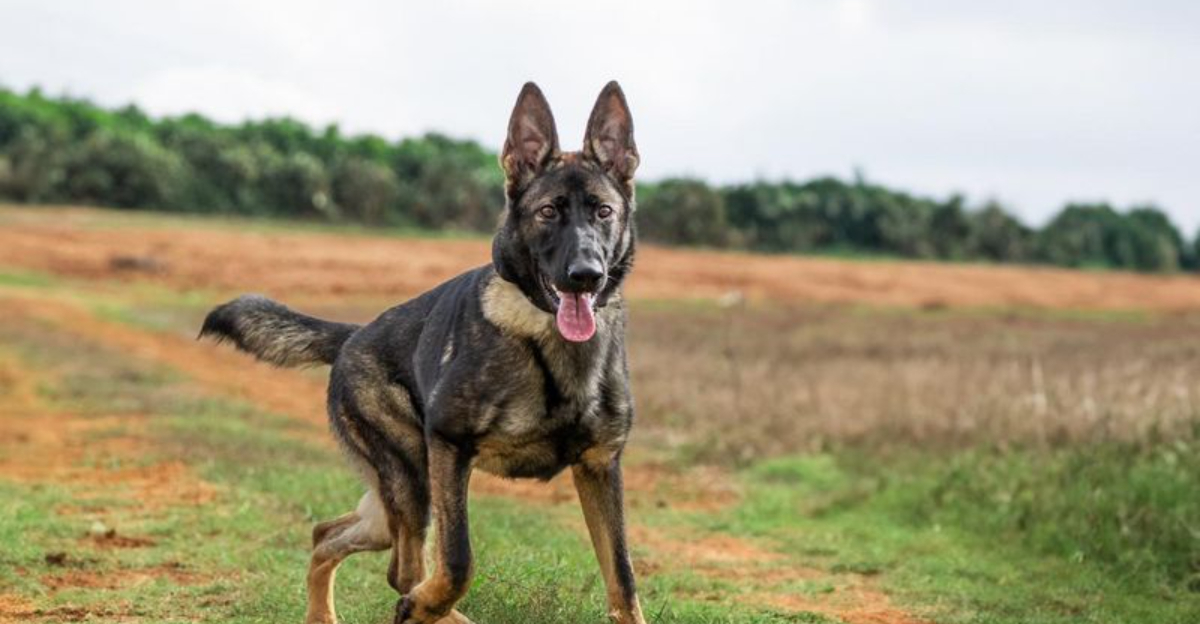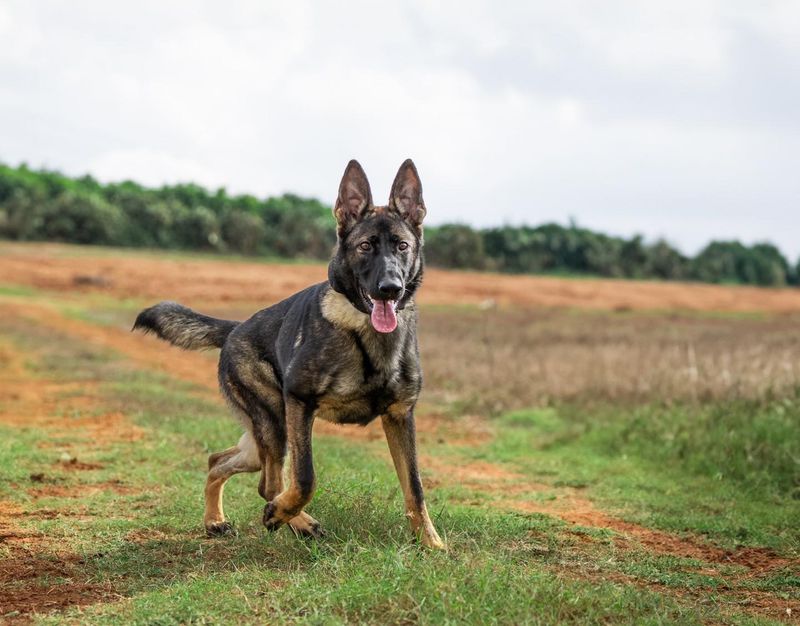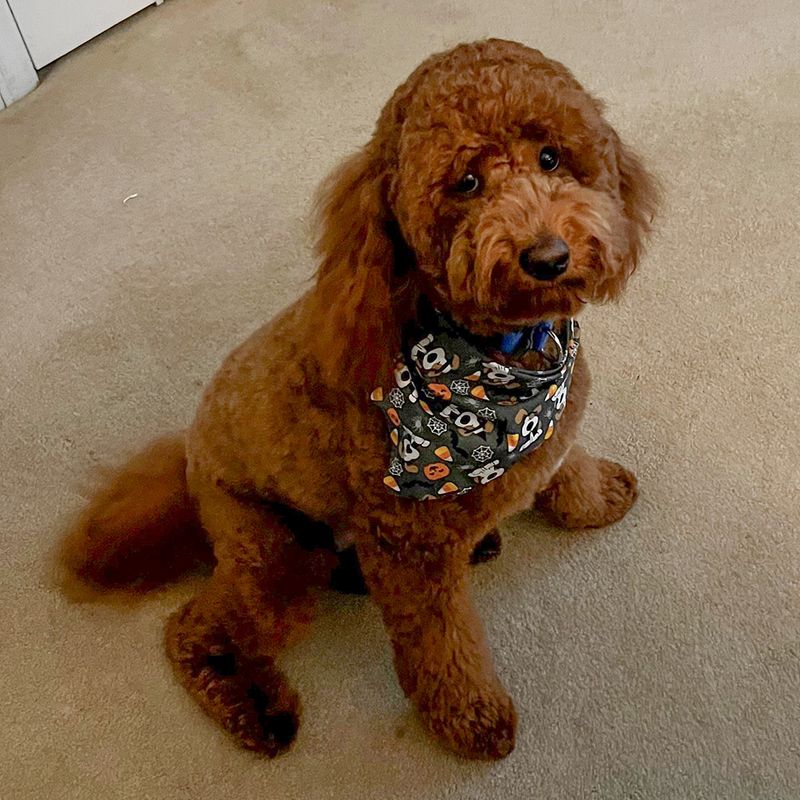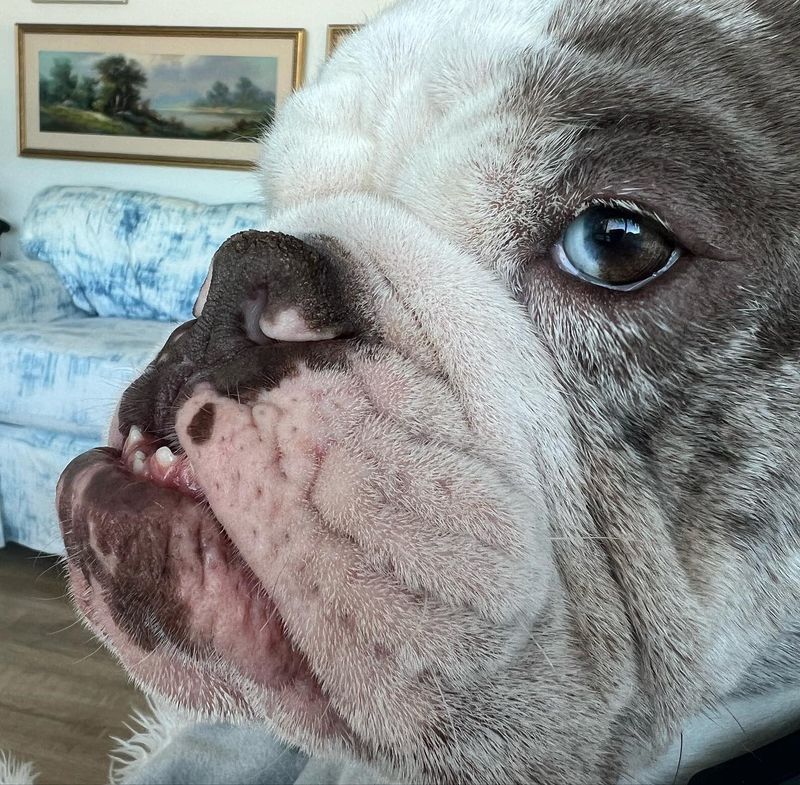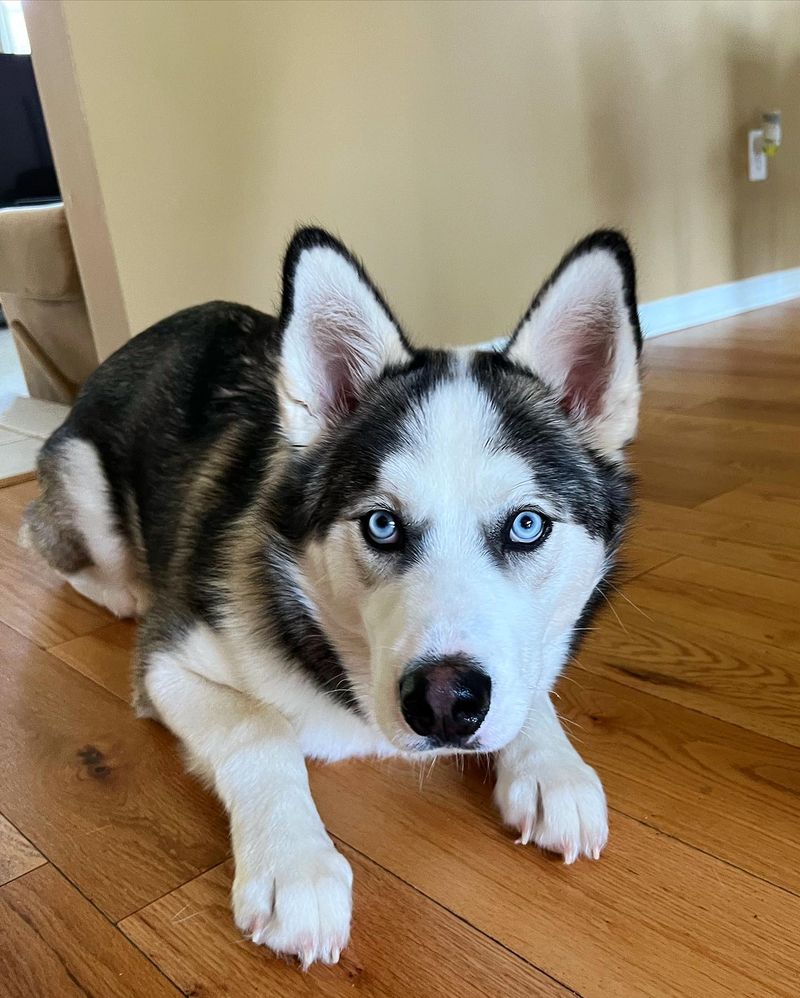Mental illness in dogs is a subject that often goes unnoticed, yet it is just as significant as in humans. Here, we explore 14 dog breeds that are more predisposed to mental health issues, whether due to genetics, environment, or social needs. Understanding these breeds can help in providing them with the care they need to lead fulfilling lives.
Border Collie
Renowned for their intelligence, Border Collies can develop anxiety when not mentally stimulated. These lively dogs excel in learning and performing tasks. An environment lacking sufficient mental challenges may lead to obsessive behaviors.
Their intense energy requires ample exercise and mental stimulation. Without it, they can become frustrated and anxious, displaying destructive behaviors.
Did you know? Border Collies are often used in sheepdog trials, showcasing their exceptional herding skills. A busy mind makes a happy Border Collie, so regular engagement is key to their mental well-being.
German Shepherd
German Shepherds are often associated with loyalty and bravery. However, they may suffer from separation anxiety if left alone for long periods. Their deep attachment to families can make solitude difficult to bear.
These dogs thrive in active households where they can participate in various activities. Regular social interactions and training can mitigate anxiety-related issues.
Fun fact: German Shepherds are popular as police and service dogs due to their intelligence and trainability. Keeping them engaged and connected with their human companions is essential for their mental health.
Cocker Spaniel
Cocker Spaniels are known for their cheerful disposition, yet they are prone to anxiety, especially when left alone. Their social nature demands plenty of human interaction.
Without adequate companionship, they may become withdrawn or exhibit nervous behaviors. Regular engagement and affection are vital.
Did you know? The Cocker Spaniel became famous in the United States after the 1955 Disney movie “Lady and the Tramp.” Ensuring they don’t feel isolated helps maintain their joyful spirit.
Labrador Retriever
Labrador Retrievers, with their friendly demeanor, can suffer from anxiety if their social needs are unmet. These sociable dogs thrive on interaction with humans and other pets.
Lack of exercise or social engagement can lead to destructive behaviors. Consistent companionship and physical activity support their mental wellness.
Fun fact: Despite their name, Labrador Retrievers originated in Newfoundland. Known for their love of water, they were originally used by fishermen to retrieve nets. Keeping them active and engaged is key to happiness.
Chihuahua
Chihuahuas, despite their small size, have big personalities. Their attachment to owners makes them susceptible to separation anxiety. Leaving them alone too often can lead to excessive barking or nervousness.
These little companions thrive in environments where they feel secure and loved. Providing comfort and attention is essential.
Did you know? Chihuahuas are often seen as purse dogs but have a long, rich history dating back to ancient Mexico. Ensuring they feel safe can reduce anxiety tendencies.
Dachshund
Dachshunds are curious and lively, but their spirited nature can lead to anxiety, particularly if they feel confined. Their strong bond with their owners means they dislike being left alone.
Offering plenty of interaction and exploration opportunities can help manage anxiety. Their playful nature makes them delightful companions.
Fun fact: Originally bred for hunting badgers, Dachshunds have a unique shape that suits their adventurous spirit. Encouraging exploration helps keep their minds sharp and happy.
Poodle
Poodles are admired for their elegance and intelligence. However, they are prone to anxiety when routines change unexpectedly. These dogs appreciate consistency and mental stimulation.
Engaging them with games and training can alleviate stress. Their adaptable nature thrives on balanced routines.
Did you know? Poodles were originally water retrievers, known for their skills in swimming. Keeping them mentally and physically stimulated ensures their contentment.
Bichon Frise
Bichon Frises are known for their joyful and affectionate nature. However, their sensitivity to their environment can lead to anxiety if neglected.
These dogs require regular social interaction to prevent loneliness. Their playful disposition makes them wonderful family pets.
Fun fact: Beloved by French royalty, the Bichon Frise has a storied history of companionship. Ensuring they feel included in family activities is essential for their happiness.
Bulldog
Bulldogs are gentle and loving, yet they can experience anxiety due to their strong attachment to their families. Separation can lead to stress and nervous behaviors.
Providing a stable environment with regular interaction helps maintain their calm and content demeanor. Their loyal nature thrives on companionship.
Did you know? Bulldogs were originally bred for bull-baiting—a now-banned practice. Today, they enjoy relaxed lifestyles with plenty of affection.
Siberian Husky
Siberian Huskies are known for their adventurous spirit. However, lack of exercise can lead to anxiety and restlessness. They require a lot of activity to satisfy their energetic nature.
These dogs enjoy companionship and thrive in active households. Keeping them engaged with regular exercise is crucial.
Fun fact: Huskies were originally bred as sled dogs in cold climates. Their endurance and strength are legendary, making them excellent companions for outdoor adventures.
Yorkshire Terrier
Yorkshire Terriers, with their bold personalities, may develop anxiety if not properly socialized. Their small stature belies a confident and lively demeanor.
Socialization from a young age helps reduce anxiety in unfamiliar situations. Their affectionate nature thrives on interaction.
Did you know? Yorkies were originally bred to catch rats in textile mills. Their energetic spirit and inquisitive nature require regular engagement to prevent anxiety.
Golden Retriever
Golden Retrievers are celebrated for their gentle and friendly nature. However, they can suffer from anxiety if left without companionship.
Regular social interaction and play help maintain their happiness. Their joyful disposition makes them loving family members.
Fun fact: Golden Retrievers were originally bred in Scotland in the 19th century to retrieve game during hunts. Keeping them engaged and loved ensures their mental well-being.
Pomeranian
Pomeranians are small but spirited, often displaying anxiety without sufficient attention. Their lively nature demands engagement and affection.
These vibrant dogs flourish in environments where they are actively involved. Regular mental stimulation is key.
Did you know? Pomeranians were once much larger sled-pulling dogs. Today, they charm with their energetic personalities and need for interaction.
Shih Tzu
Shih Tzus are known for their affectionate and calm demeanor. However, they can become anxious if their need for companionship is ignored.
These dogs thrive on love and attention, forming strong bonds with their families. Including them in daily activities supports their happiness.
Fun fact: Shih Tzus were once prized by Chinese royalty as palace companions. Their need for companionship is an enduring trait that requires nurturing.
